When God of War moved from its Greek mythology timeline to Norse mythology, they took their Greek protagonist Kratos and placed him in the Norse world. Some fans might be wondering how historically accurate this move is.
Sadly, I have to tell you that this is complete fiction and that the game makers have taken some serious liberties with Norse mythology when creating their world.
But they haven’t got everything wrong, and their take on some elements of Norse mythology offers interesting food for thought. So, let’s take a look.
Warning! Lots of spoilers below.
Who is Kratos
Kratos is the fictional protagonist of God of War, and his origin story belongs to the original Greek setting of the game.
Kratos is a Spartan warrior who is tricked into killing his entire family by Ares, the Greek god of war. He goes on to kill Ares in vengeance and takes his place as the god of war.
It is later revealed that Kratos was a demigod, one of the many sons that Zeus fathered on mortal women. While there is no mention of a Kratos who is a son of Zeus in Greek mythology, considering just how many sons Zeus fathered, this isn’t really a stretch.
During the Greek era, Kratos is dominated by rage, which seems to blind him to everything else, including morality.
By the time we meet Kratos again in the Norse era, he is a much more even character and is focused on being a father and mentor to his son Atreus.

The reality, however, is that there is little connection between Greek and Norse mythology. They grew from different traditions and the similarities that exist between them are generally those things that appear in most religions.
The Romans, who largely shared Greek mythology but with different names for their gods, had some contact with proto-Norse religion through Germanic tribes. They often understood the gods that they encountered by equating them with their own gods. In the first century AD, the Roman writer Tacitus equated Odin with Mercury, Thor with Hercules, and Tyr with Mars.
Enemy of the Norse Gods
The world of Norse mythology that we explore with Kratos in the game is a world turned on its head. The Vikings generally portrayed the Norse gods as the heroes of the universe, protecting it from the chaotic forces of the Jotunn. In the game the Norse gods are the bad guys, cruelly savaging the world as they see fit.
While this is a reversal of classic Norse mythology, it is not without merit. The Aesir gods are never described in the original sources as pure and good. There are many examples of morally questionable actions and behavior.
In the creation myth, Odin killed the first giant Ymir because he was producing too many offspring and killed most of the living Jotunn in the flood of blood that followed.
The Aesir tried to trick the Jotunn that built the walls of Asgard for them so that they would not have to pay, and then killed him. They stole the Mead of Poetry from a Jotunn, and then killed him when he tried to retrieve it. They engaged in war with the Vanir gods because they had cultural practices that did not conform with Aesir ideas.
One of the more serious crimes committed by the Aesir was against the children of Loki with the Jotunn Angrboda. They feared the offspring of this “monstrous union” and so decided to imprison them while they were still young.
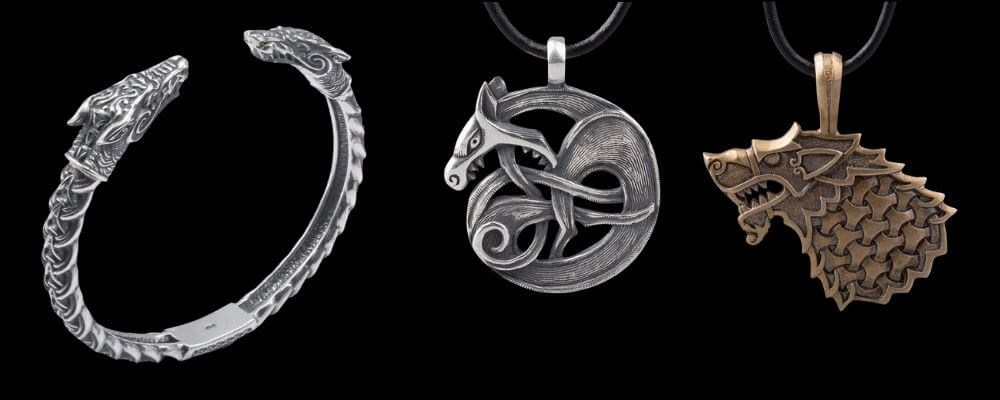
They chained the wolf Fenrir to a rock on a deserted island with an unbreakable enchanted chain. They banished Hel to the underworld so that they would not need to look at her hideous half-dead visage. They threw the small serpent Jormungandr into the waters surrounding Midgard. There he grew to such an enormous side that he could circle the whole world.
While traditional Norse mythology treats the Aesir gods as heroes, it is not hard to see them as villains from an alternative perspective, and this is what is happening in the game.
Kratos and Ragnarok
Kratos and his son find themselves in opposition to the Norse gods because of a prophecy that a “white ghost” (Kratos) and his son would do something to cause Ragnarok to happen earlier. As a result, Odin sends his henchmen Modi and Magni, the sons of Thor, after Kratos.

This is not out of line with Norse mythology. Long before Ragnarok occurred, Odin received a prophecy telling him how the world would end. However, he seems to have considered this fate inevitable and done nothing to try and avoid it. The prophecy, of course, makes no reference to Kratos. But the premise of the game is that Kratos’ presence and actions cause Ragnarok to happen about 100 years earlier than it should.

It is worth noting that in the game Kratos kills Modi and Magni, even though the sons of Thor are considered among those who survive Ragnarok to rebuild the world in the historical texts. This shows that Kratos is out of time and place, and therefore affects established history (and prophecy).
In the Ragnarok prophecy of Norse mythology, the events that bring about the end of the world start with the death of the god Balder. This same happens in God of War, except that Balder is killed by Kratos rather than his blind half-brother Hodr.
Kratos and the Norse Gods & Monsters
Balder

Balder is probably the character most changed in God of War. In mythology, Balder, the son of Odin, is kind, handsome, shining bright with nobility, and considered the best among the Aesir. He is also invulnerable. This was a joke among the Aesir gods, who would throw knives and spears at Balder to watch them bounce off.
However, it turns out that the only thing that Balder is not invulnerable to is the humble mistletoe plant. Loki learns this information, makes a dart out of mistletoe, and tricks Hodr into throwing it at Balder, killing him. The gods executed Hodr for his role in this trick, which is just another sign of their cruelty.
In God of War, Balder is the main antagonist, which does not reflect his peaceful character. He comes across as a ruthless psychopath who has been sent mad by his inability to die or feel pain. Kratos does eventually kill Balder, though it is unclear whether this is permanent.
Freya

Kratos receives help in dealing with Balder from the goddess Freya. In both mythology and game, she is one of the Vanir gods and well-versed in magic.
It unfolds in the game that she is the mother of Balder and that she is the one who cast the spell to make Balder invincible in response to a prophecy she had about his death.
In Norse mythology, Frigg and not Freya is the mother of Balder. However, there is some evidence to suggest that Frigg and Freya were originally one and the same and that they were separated into two different goddesses at a later date. This provides some justification for the game makers choosing the more well-known and dynamic Freya to feature in their game.
Frigg did indeed receive a prophecy that Balder was in trouble, as she was a seer. In response, she went around to all things in existence and secured a promise from them that she would never hurt her son, essentially making him invincible. However, she forgot the humble mistletoe plant, opening the crack that allowed Loki to kill Balder.
Mimir

We also meet the Aesir god Mimir in the game. The real Mimir was considered the most intelligent of the gods. He was sent to the Vanir after the Aesir-Vanir was to help them adjust to Aesir ways of life. The Vanir soon became frustrated with him and killed him. Odin then reanimated his head to act as his eternal advisor.
In the game, Kratos kills Mimir at his own request and reanimates the head to act as his advisor.
Odin

Meanwhile, in the game, Odin appears as a ruthless and violent ruler. He attacks the Jotunn, and the god Tyr helps them avoid his wrath. For this, Odin severely punished Tyr.
Again, this actually has some basis in real mythology. Odin killed the majority of the Jotunn population when he killed the primordial giant Ymir and flooded the world with his blood. It is also believed that Tyr was the most powerful of the Norse gods until he was surprised by Odin and placed in a secondary position. Odin’s punishment of Tyr could be a reflection of that idea.
Thor

We only meet Thor in a secret ending to the game, though he is mentioned frequently throughout. He is characterized as wreaking havoc in the world with his hammer, whereas in Norse mythology he was the protector of the world with his hammer.

The game also describes Odin as commissioning the dwarves to make Thor’s hammer, when in mythology it was Loki who procured the hammer as part of a mission to restore the golden hair of Thor’s wife Sif.
Jormungandr

While Jormungandr is always portrayed as an antagonist in Norse mythology, after initial confusion he is an ally of Kratos in the game. This makes sense from the perspective of the game if they have a shared enemy in the Aesir gods.
But the Jormungandr that we see in the game seems to have traveled back in time. The Ragnarok prophecy says that Thor and Jormungandr will fight to the death at Ragnarok, and this is picked up by the game. The suggestion is that the battle was so great that it caused a rip in time and Jormungandr was thrown into the past, where he could share future knowledge with Kratos.
Loki
Probably the most out of place thing in the games’ use of Norse mythology is the reveal at the end that Kratos’ son Atreus is in fact Loki. This is incongruent with the mythology, as Loki seems to have lived among the Aesir gods from the time shortly after creation, as he was there when the walls of Asgard were built
Considering the key role that Loki plays in so many stories of Norse mythology which seem to have already unfolded by the time Kratos enters in the picture in the game, a young Loki that does not know his identity leaves a gaping hole.
Spoilers!
But no doubt this is all part of the setup for God of War Ragnarok, the next chapter of the game set to be released later in 2022. Trailers and spoilers show Atreus growing into Loki and being guided by his father as he prepares to face Ragnarok.
Trailers also promise that we will meet Angrboda, one of the last of the giants. Kratos will be hunting Tyr, who has been imprisoned by Odin and is probably looking for revenge. Are you excited for the next chapter of God of War set in the Norse universe? You know we are!
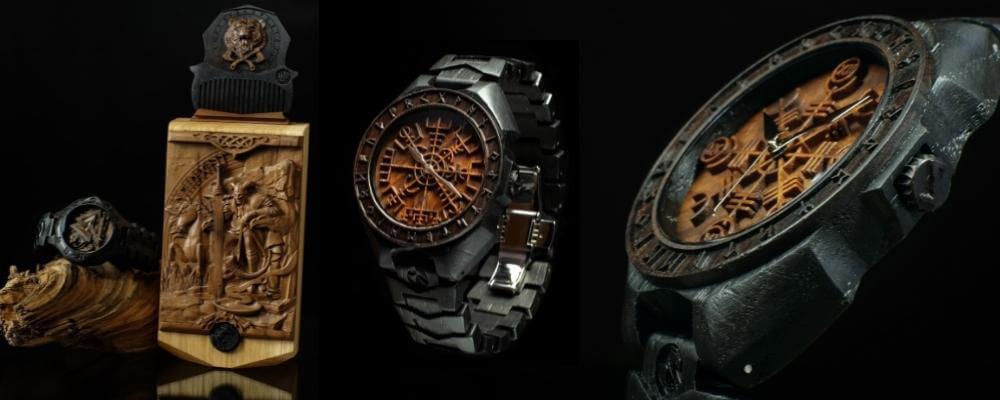
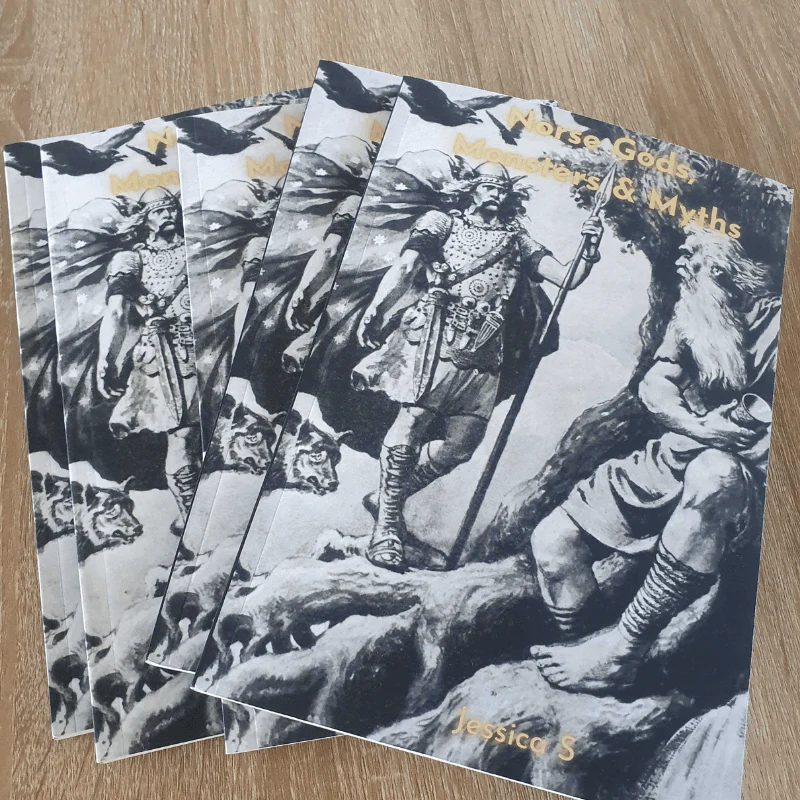
Get Your FREE e-Book
Norse Gods, Monsters & Myths
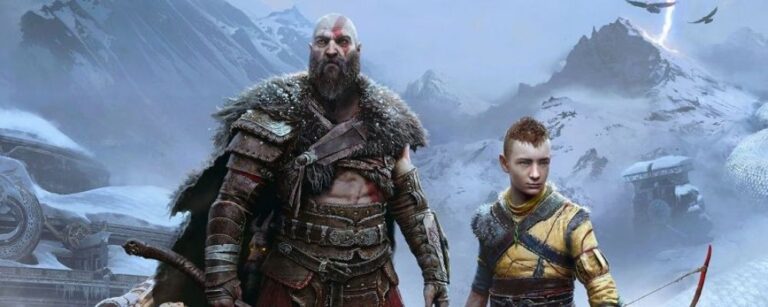

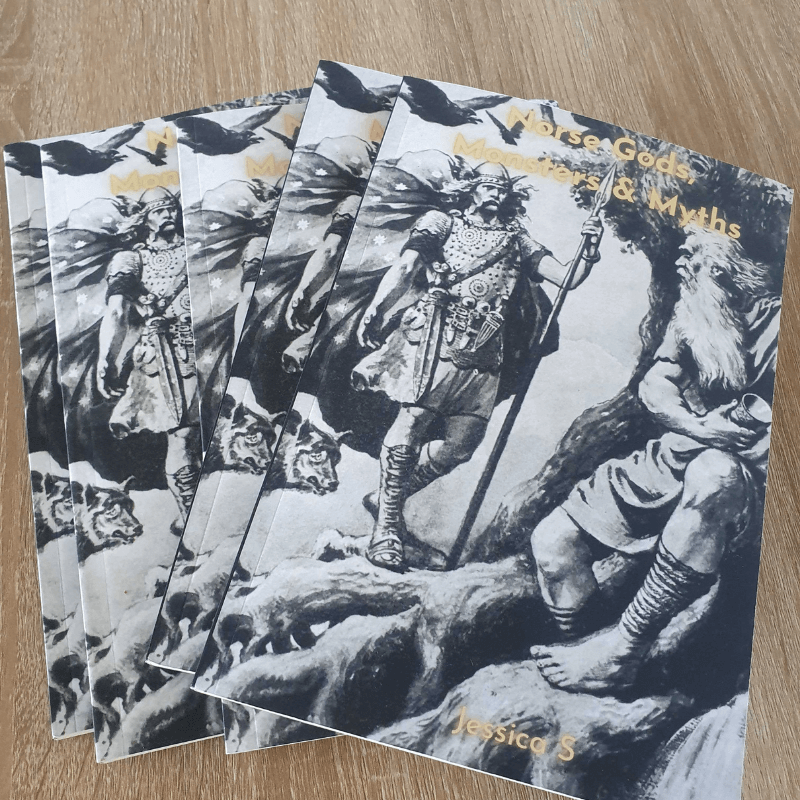

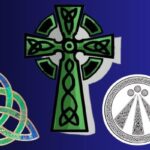
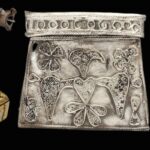
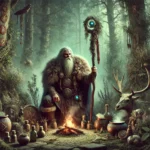
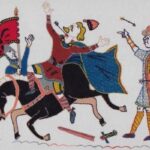
I’m sorry but you got so many things wrong in this post that I just have to comment! I don’t mean the story but you got embarassingly many typos. Firstly, it’s not Gods of War but God of War. Secondly, it’s really not Aries, as much as astrology fans would love this, it’s Ares. And you even misspelled Balder’s name once, it’s written Blader in this sentence : “This was a joke among the Aesir gods, who would throw knives and spears at Blader to watch them bounce off.” Moreover I think you just missed the point of playing a videogame altogether, the point is, it doesn’t have to be based on facts or mythology to the point, but loosely, the point of it is to be fun. If you start with this line of thought on the Assassin’s Creed games…you’re in for a surprise. And I don’t mean Valhalla, take any of the Renaissance games. I don’t mean to be rude of course, but as a Norse mythology fan and artist plus a big videogames fan, I feel a bit disappointed at a shallow review on one of the coolest hack and slash games based on mythology. Other than that, I’m really a fan of your work and got my own two Jormungandr rings so keep up the great work!
Hi, thanks for pointing out those errors and pushing me to go back and take another look. Though I certainly didn’t mean for the post to be a criticism of the game – I’m just more of a history buff than a gamer I guess. I actually really like what they have done with the Norse storyline, casting the Aesir gods as the antagonists and making Kratos a disruptor of the prophesized events of Ragnarok. I’ve always thought that there is an alternative telling of Norse mythology through the eyes of the children of Loki, who the Aesir gods treat appallingly, and that is kind of what they are doing in the game, with Kratos in the mix. So yeah, I really like it, and definitely think its fine for game makers to play with the mythology to create their game landscape. But lots of people ask how “accurate” these things are, so just trying to give them an answer. Thanks for your support and glad you love the Jormungandr rings.
Great article! Good food for thought.
I’m going to disagree a bit with regard to Atreus and Loki. Whilst Loki is undoubtedly a bad guy overall, the tale of Ulf, Thora and their daughter Asta makes him look a far more noble figure when someone is up against overwhelming odds and has desperate need. This compassion for the suffering of others certainly fits Atreus’ character.
One other thing I disagree with, maybe – I think the character who is most unlike their Norse “canon” counterpart is actually going to be Tyr. Given that time travel from Ragnarok is part of this story, and given the ending where we find out that Kratos and Atreus had this path made for them, and given the conflict between Odin and Tyr that was a major part of the plot, I think that Kratos will actually turn out to be Tyr in a future game.
Other than that I mostly agree. I actually thought the makers of this game treated the source material very respectfully. In most pop-culture depictions of these characters (thinking mostly of Marvel) the characters are way way off. The game depicted Thor as quite a brutal individual. Whilst he was a hero, he did talk favourably of holding a woman down to have his way with her in Hárbarðsljóð, as well as taking two children as slaves on his journey to Útgarð, so he had a much darker side than is generally acknowledged. It was nice to see that darkness of the Norse gods properly represented for a change.
Oooh, Kratos as Tyr, interesting theory. I quite like the way that they have placed Odin against Tyr, reflecting the way that Odin usurped Tyr as the most important deity in the Norse pantheon sometime before the Viking period. But that Kratos will be Tyr is an interesting idea.